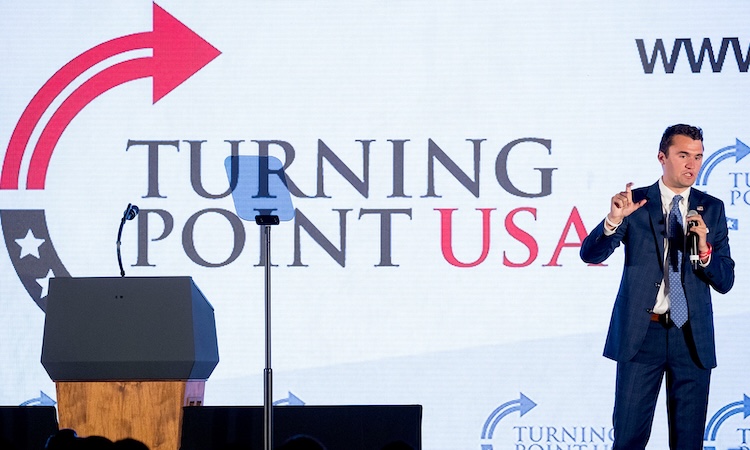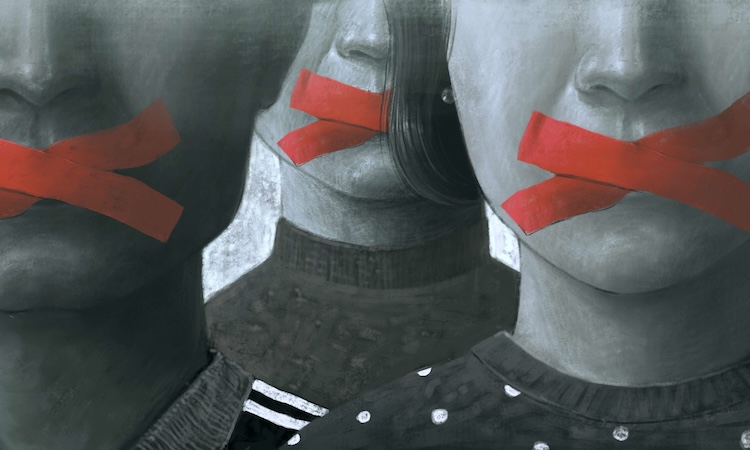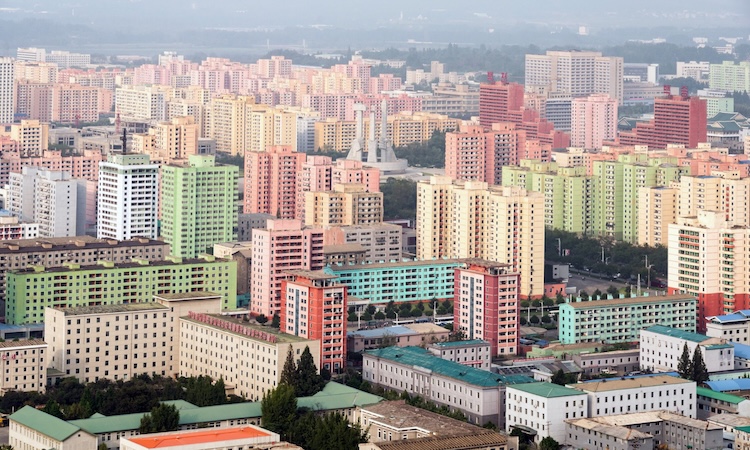Former United Kingdom Independence party (Ukip) leader Nigel Farage has revealed that the bank where he had kept his money since 1980 (Coutts) recently given him two months’ notice of its intention to close all his accounts by the end of June.
Mr Farage made the announcement via a Twitter video on 4 July 2023, complaining that seven further banks had refused to open new accounts for him on application.
Increasing use of a most draconian sanction
Farage isn’t alone in suffering this apparent banking ban. In the same week, former Brexit party MEP Christina Jordan revealed that she had been subjected to the same treatment, as did Scottish pro-independence blogger Stuart Campbell. Farage says that members of his family have also been denied banking services.
In his video, Farage suggested that his targeting may be connected with a European Union law that remains on the British statute books. The law he was referring to is the legislation on ‘politically exposed persons’, which is supposed to apply to people who hold state or political office and are deemed to be at high risk of bribery or corruption – thus presenting a risk of unwitting collusion to any bank providing them with financial services.
The fact that neither Farage, Jordan or Campbell have ever held political office within the British state is unlikely to prevent this law being abused, so it is possible that it has indeed been used to provide some legal cover for a totally unjustified sanction, applied without a shred of due process, and which, in the modern world, has been described as ‘non-personing’.
Brexit revenge?
Meanwhile, further clues to the mystery may lie in some of the wild stories that have been circulating amongst bourgeois politicians in Britain regarding the role of Ukip and Farage during the Brexit referendum. One such story was repeated in the House of Commons by Labour MP Chris Bryant, who accused Farage of receiving payments from the Russian government – an accusation Farage vehemently denies.
Such charges have become standard practice in Britain and the USA, where political leaders have become so divorced from reality and from the masses that they are unable to deal honestly with any political reversal. From the unexpected electoral victory of Donald Trump to the unexpected loss of the Brexit referendum, the establishment schills in London and Washington are more comfortable conjuring fantastical conspiracy theories involving the hidden hand of the Kremlin than facing the reality of their defeat with eyes open.
Taken all in all, it seems that the most likely explanation for what has been done to Farage is that it is an act of vengeance being taken by the ruling elite in conjunction with the banks, all of whom (as Farage rightly pointed out) were bitterly opposed to Brexit.
This in turn indicates that the impact of Brexit – which was in essence a working-class revolt against the British bourgeois political-media and cultural establishment – is still animating many members of the elite to the point of madness.
The desperate drive by both Tory prime minister Rishi Sunak and Labour leader Keir Starmer to undo Brexit and find a way to return Britain to the EU is motivated by British imperialism’s need to remove all barriers in the way of capital flow, as well as to have unrestricted access to the continental labour pool. This need is becoming ever more urgent as the economic crisis deepens, and explains the establishment’s relentless hostility towards Brexit an all those who were prominently associated with it.
Former prime minister Boris Johnson, as establishment a politician as it is possible to be, has been forced out as an MP precisely because of the hatred many members of the ruling class have for role they feel he played during the referendum. While they were forced to put up with him for a while in order to properly dispose of Jeremy Corbyn, they were desperate to replace him with an establishment ‘Yes man’ like Rishi Sunak, and did so as soon as they were able.
But this is not enough for the ruling class, whose representatives are desperately trying to undo what they see as the damage done to their system during the years 2015-20. In the process, they are lashing out wildly at any prominent oppositional figurehead – even those who are as staunchly pro-imperialist as Farage and Johnson in Britain or Trump in the USA.
Repression and war the only tools left in the box
What we are witnessing, in fact, is a ruling class that has become painfully aware that it faces serious problems, but which is unable to respond in a constructive way. All it has left to it in the face of the rising social crisis is greater repression and ever-more desperate attempts to stifle all dissent.
This is not a new phenomenon, but it is clearly reaching new heights. What we are seeing today is an extension, on a new level, of a process that has been going on for a very long time in Britain, forming a crucial part of the ruling class’s war on workers’ rights and organisation.
Margaret Thatcher used the banking system against the National Union of Mineworkers (NUM) during the titanic miners’ strike of 1984/5, confiscating its assets in some regions and sequestering them in others, forcing miners’ leader Arthur Scargill and his comrades in the NUM leadership to drive round the country with carrier bags full of cash to keep struggling strikers from starvation.
This approach to crushing dissent was then formally enshrined in the plethora of anti-union legislation that was put in place by successive governments Tory and Labour governments, enabling the state to seize any union’s funds that is deemed to have defied these laws.
Since the 1990s, we have also seen successive ‘anti-terrorism’ acts adopted in Britain, which stretch the definition of terrorism so far that it could be applied to almost anyone the government might wish to target.
When we add in the fact that the government’s ‘Prevent’ programme seeks to turn all public sector workers into state spies whose information can lead to families being forcibly broken up and its members sent on ‘deradicalisation’ courses, we start to see that the British government has been engaged in a widespread campaign of intimidation against its own population, almost all of whom it considers to be suspect in some way or another.
The criminalisation of dissent continued with the US and British campaign against Julian Assange and WikiLeaks, both of whom were summarily kicked off of all online payment platforms 13 years ago. This in turn was followed by the long-running attempt to deport Mr Assange to the USA on the most spurious of grounds for the crime of reporting important facts (imperialist war crimes) to the general public.
What becomes clear from all of this is that the notion that British citizens enjoy the right to free speech is a bad joke. When the government has a definition of terrorism that is broad enough to encompass anything it likes, and an individual can be reported to the police agencies by their child’s teacher, their landlord or their doctor, that cannot be regarded as anything other than a deeply repressive society. All of which makes the government’s attempts to demonise the DPRK, China or Russia for their supposed violations of free speech an absolutely appalling joke.
That the ever-increasing level of repression in Britain is no accident, and that it stretches back over so many decades, should also come as no surprise. British capitalism has been stuck in a series of crises going back to the 1960s. It obtained a brief breathing space for itself by attacking the working class in order to destroy the most powerful and organised unions, such as the NUM, and by engaging in ever more brutal acts of imperialism after the collapse of the USSR in 1991.
But even as it gained some level of relative stability, this did not last long. By 2007, the crisis had returned in earnest, creating a deep depression that has continued to this day. This long depression has begun to hollow out the support of poor workers in Britain for the political system, and even of elements of the petty bourgeoisie, leading in turn to destabilising events like the election of Corbyn as Labour party leader (2015) and the establishment loss of the Brexit referendum (2016).
At each turn, the ruling class has responded by unleashing another wave of hysterical anti-worker propaganda and yet more repression – as well as by whipping up ever more strident hysteria against the biggest obstacles to its global plunder: Russia and China.
In such a reactionary atmosphere, communists must make it clear that we are totally opposed to these ‘non-personing’ sanctions being taken against anyone, from independent journalists like Julian Assange and Graham Phillips to right-wing demagogues like Nigel Farage. Such actions are clearly designed to intimidate the wider population and keep them in line, knowing as they do that without a bank account it is almost impossible to exist in a modern capitalist country.
Fifty years ago, large numbers of working-class people operated without one, still receiving their pay in weekly cash envelopes. Now, even if they are paid weekly, employers almost all use direct bank transfers, while utility providers expect their bills to be paid via direct debits or online transfers.
The ruling class knows this perfectly well, of course. By picking on someone as high profile as Farage, they are letting it be known that they have the power to target anyone who engages in any form of dissent at will – the modern equivalent of the old ‘we know where you live’, in fact.
The dangers inherent in such a situation to the working class are clear, and need to be highlighted. We must be careful not to sow any illusions in the potential of capitalist democracy to solve workers’ problems, however. Our ultimate goal is not to somehow ‘return’ to a slightly less repressive model of capitalist rule, but to help the working class understand that only a state freed from the domination of a minority exploiting class – only a socialist state – can guarantee real freedom, while also bringing real prosperity to all.














